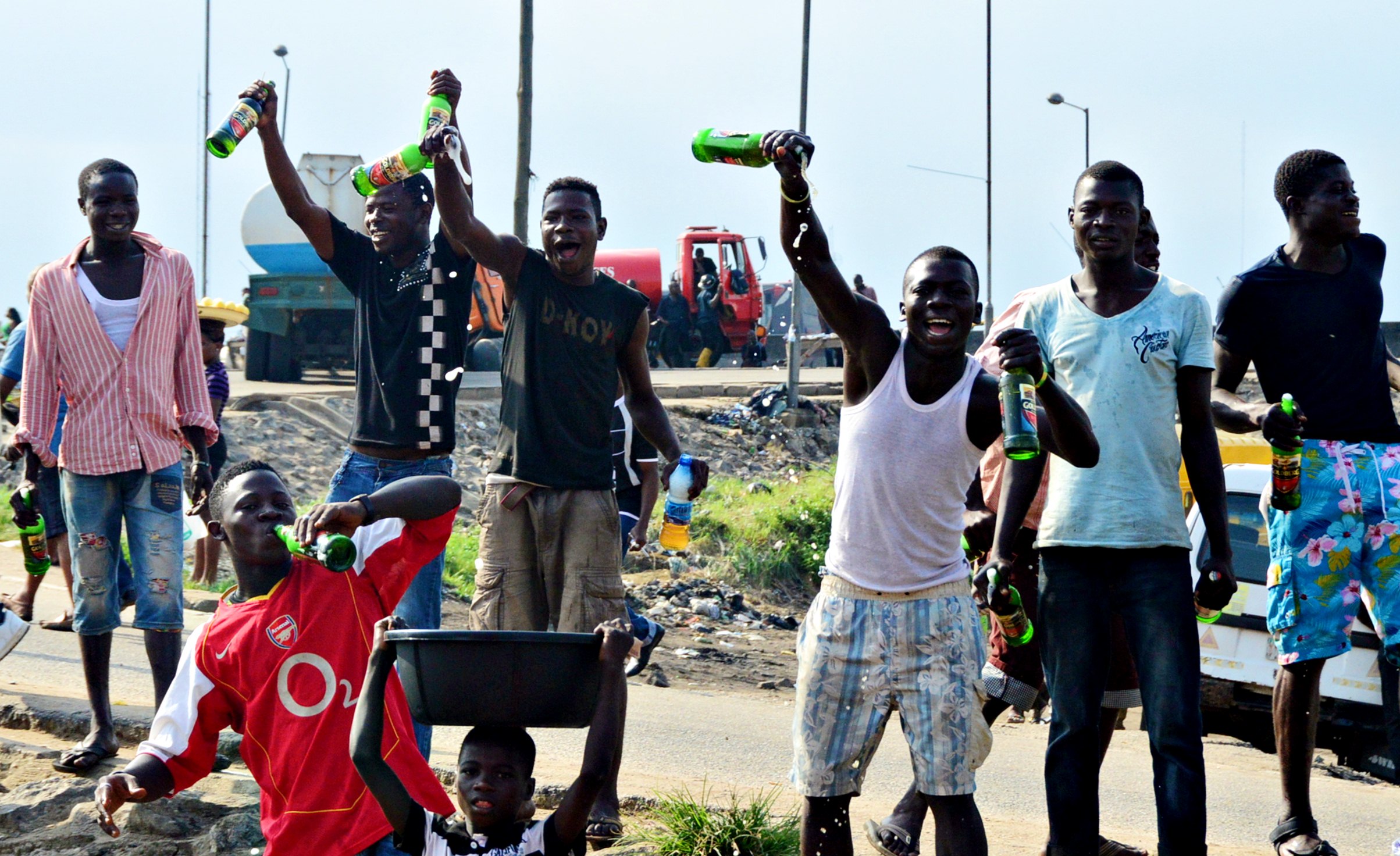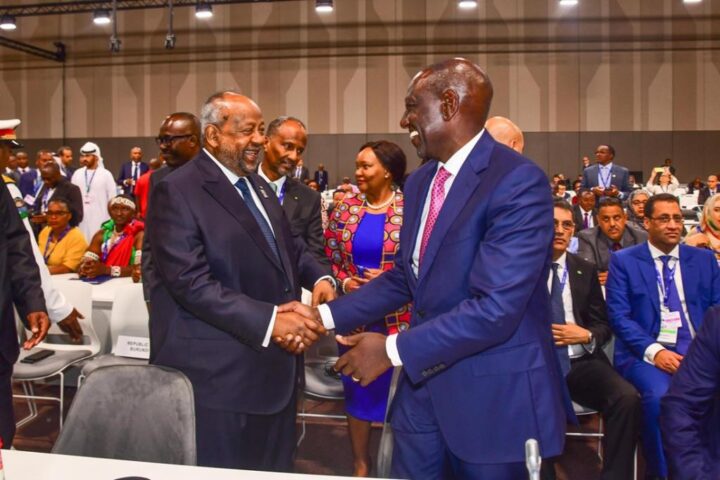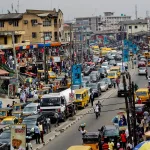The almost week-long clash between rival cult members of the National Union of Road Transport Workers (NURTW) in Lagos was another watershed in the long list of terror hot spots plaguing ordinary people in Nigeria.
It tended to highlight the unholy harmony between deadly cult gangs and the agencies of government. Across the country, there are many roadblocks and checkpoints mounted by groups of sorts who prey on motorists, business people and unsuspecting pedestrians. The menace has grown into a monster because it has become employment for many unscrupulous elements who waylay innocent people/communities and, at times, collect illegal fines and taxes at gunpoint.
Motor parks, local roads, busy junctions in big cities and important intersections on federal roads have become booby traps where curious uniformed men and women gather to stop, arrest, detain and fine motorists heavily for contrived defaults. Lagos is an eyesore in this respect, with uniformed people and agberos almost outnumbering plain cloth citizens, wielding sticks, shining red eyes and chasing vehicles with gusto.
Join our WhatsApp ChannelWe believe that the agberos have become an important precursor to the wanton impunity seen in contemporary bandits.
Virtually every state capital and business hub in Nigeria is littered with men who work in the guise of local, state and federal revenue collectors to inflict terror. The aspect of using long sticks replete with nails as roadblock is an old culture that subsists here and there.
Between 2013 and 2018, uniformed men in Abakpa, Nike in Enugu State, ostensibly working for the Enugu East Local Government headquarters became the nightmare of motorists who used the then newly-constructed detour running from Nsukka to Enugu owing to the deplorable state of the federal road. In many cases, the revenue collecting boys brandish POS machines or drive their preys to ATMs to withdraw huge sums of money. Some victims have described scenarios that mimic kidnap experiences.
Anambra governor-elect, Charles Soludo, few days ago, threatened to shut all revenue windows when he noticed that state officials were notoriously sharing such windows to contractors who habitually invent ways to extort people, sadly on behalf of government. The cash-box from such contracts become so juicy that the contractors employ large armies of daredevil young men, who, in turn, form cults to maintain the stranglehold on their revenue turf. Soludo has started on a good note, and we urge him never to recoil in despair.
Last week also, the minister of information and culture, Lai Mohammed, angrily reacted to a report by reputable global media firm, The Economist, that the activities of tax collection by bandits in Nigerian communities was a big threat to the country. Mohammed equated the activities of the bandits in Nigeria’s t North Easwith similar scenario in places in the South, which he refused to name, insisting that revenue collection by area boys (or is it bandits?) was a culture that made it unnecessary for any media firm to single out the case in the North East.
For Lai Mohammed, collection of taxes by bandits does not mean the bandits have taken over. Mohammed said: “Do you know how many places in this country where area boys collect taxes and there is no terrorism and banditry there. I don’t want to mention names. In many of our cities, they carve out their own territory, so, it is not indicative of the bandits taking over.”
While Mohammed simply tried to defend the non-exclusivity of the North East in illegal tax collection, he indirectly put a stamp of credibility on the bad news of area boys, territory ownership and their illegal imposition of taxes. He also bared the shame of government in allowing such illegality to transmute from street experience to outright culture.
Moreover, we wonder why Mohammed failed to name the areas in the south where area boys unleash mayhem. Is he unwittingly denying the security agencies of important lead?
According to the Lagos Metropolitan Area Transport Authority (LAMATA), as of July 2021, there were about 75,000 commercial buses in Lagos. Some estimates put the daily toll collected by agberos (ticket touts) from each commercial bus at an average of 3000 naira. Commercial buses alone pay over N82 billion yearly to illegal revenue collectors, thereby. Add this to the over N1800 paid daily by each of the over 50,000 tricycles in Lagos – a princely 32.85 billion in annual revenue fleece. In some areas, each tricycle operator give as high as N3000 as daily payment.
Also, from about 37000 motorcycles in Lagos, most of whom operate despite a subsisting ban, there is an estimated yearly till of over N8 billion from a daily exertion of N450 to N600 by cyclists to agberos.
In all, there is an estimated yearly revenue of over 120 billion naira (about 300 USD) from the transport sector alone outside what is collected from taxis, lorries, market women, petty traders, artisans, and many more.
Figures from the National Bureau of Statistics (NBS) indicate that illegal collections from area boys in Lagos (the highest IGR making state in Nigeria) surpass the internally generated revenue total of any other state in Nigeria. It is much more than the total IGR of the five states of the Southeast.
Unfortunately, a report by the Debt Management Office in March 2021 showed that Lagos was the most indebted state in Nigeria, with a debt status of N507.377 billion. Yet, the revenue pocketed by area boys can offset 24 per cent of the said debt.
One implication of the silence of the agencies of government is possible collusion and complicity.
Since 2018, Governor Nyesom Wike of Rivers State has continued to cry to police authorities to arrest the well-known owners of illegal refineries and their appurtenances. Last week, the governor pointedly accused a divisional police officer in Rivers State of operating an illegal refinery.
Recall that illegal refineries are among the major sources of the soot currently enveloping Rivers State. In like manner, reports show that agberos are somewhat officially recognized among government-owned transport bodies and the NURTW from where, it is alleged, illegal revenues are further illegally funneled into officials’ pockets.
We at Prime Business Africa call on government to immediately deal with the illegal revenue collectors very decisively. This is especially now that it would appear that the minster of information himself has inadvertently given credibility to operations of bandits, agberos and area boys and their imposition of fines.
This is one major way to further unleash the anti-corruption fight, and to also save government agencies from damning allegations of complicity in the festival of illegal tax collection running riots in Nigeria.


















![Gender Activism An Economic Necessity In Africa [PBA Editorial]](https://www.primebusiness.africa/wp-content/uploads/2023/11/vaw-720x480.png)

Follow Us